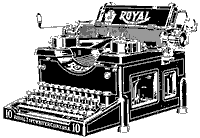I got on an English Civil War kick a little while ago, and when I started to look around for some novels to read, one of the first I came across was Myself My Enemy, Jean Plaidy's 1983 novel about Henrietta Maria, wife to Charles I.
Myself My Enemy is written in the first person, and traces Henrietta Maria's growth from a headstrong young girl to a more reflective older woman, one with many regrets.
This isn't the best novel about the English Civil War I've ever read. Plaidy's prose isn't particularly memorable, and she always tends to tell more than to show. Nonetheless, Plaidy has a gift for getting inside her characters' heads and making the reader care for them, and I thought she did that well with Henrietta. Fiercely loyal to her husband, deeply committed to her Catholic faith, suffering myriad tragedies, and just as often doing the wrong thing as the right one, Henrietta is an interesting heroine, and Plaidy succeeds in making her an appealing one despite her manifest flaws, of which Henrietta is all too aware despite her best efforts to rationalize her actions to herself. Her wavering between self-knowledge and self-justification is depicted particularly well in the scene where Henrietta mourns her son Henry, whom she had alienated before his untimely death by attempting to convert to Catholicism.
Plaidy depicts Charles I sympathetically, without idealizing him, and the relationship between him and Henrietta is moving. Charles II, blithely ignoring his mother's advice, and not without good reason, is also well drawn.
Judging from the reading I've done since about Henrietta Maria, Plaidy seems to have researched Henrietta's life thoroughly and stuck to historical fact, a refreshing contrast to some more recent novels I've read about other historical figures.
All in all, an interesting introduction to a beleaguered queen, and one that got me scouring the library to learn more about Henrietta.
Thursday, November 30, 2006
Subscribe to:
Post Comments (Atom)



3 comments:
I agree with you about the quality of Plaidy's prose; I've always found it to be a bit too dry. She does, however, for the most part, take pains to be accurate, like you said. Her novel on Katherine Parr, for example was much more accurate than Carolly Erickson's novel on the same subject, which seemed to sacrifce accuracy for the sake of appearing more "interesting".
I had the same problem with Erickson's novel. I thought it was well written, but I couldn't get past all of the inaccuracies so I couldn't enjoy it. Pity, because I think Katherine Parr was a fascinating woman.
Hi Susan! I didn't realise you had started another blog. I devoured a lot of Plaidy novels when I was in high school, but haven't got around to reading any since...something that I have every intention of rectifying...one day!!
Post a Comment